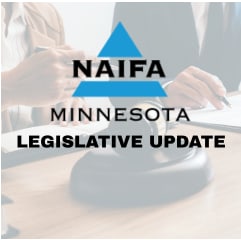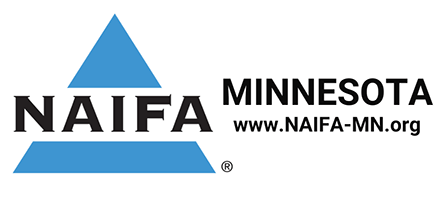
NAIFA - MN Legislative Update | June 2025
Recap Minnesota Legislature 2025
Here is a short summary of where some things landed that may be of interest ~ Tim Wilkin
HF4 Commerce Policy & Finance
Reinsurance
The bill includes a fix to the state reinsurance program that will fund it for the next seven years. The bill includes a very convoluted combination of funding for the program that includes funds from the Health Care Access Fund and the General Fund. The bill also reinstates the MCHA Assessment on group health insurers, but those insurers can claim a credit against their premium tax liability, neutralizing the premium impact on businesses and consumers.
Limited Long-term Care Policies
While the language to allow Limited Long-term Care Policies came from the Department of Commerce and was included in both the House & Senate Commerce bills, ultimately bill negotiators felt they didn’t have the right language to effectively roll out the new product in Minnesota. We expect the language will be refined and reintroduced in the 2026 legislative session.
CE for Association Membership
This language never got to bill form in part due to the back-up at the Revisor’s office. Also, the House Republican Commerce chair, who supports the concept also wanted a few changes. It will likely be in play for the 2026 session and we will continue to work with Rep. O’Driscoll on it.
Public Option
In a major win, the Health & Human Services bill repeals the commissioner of commerce’s authority to seek federal approval to implement a public option in the state.
Tax Bill – HF9
In the last week, the tax bill went from a 12 page leadership directed compromise to a 129 page bill. Most importantly, there was no Sales Tax on Services. Thanks to your members for speaking out against that provision.
The issue below is the only one that may impact your members, though it seems as if it was written for a specific IRA provider. It can be found in Article 1, Section 18 of the bill.
Correction of errors; certain retirement contributions.
Requires an annuity contract provider to designate certain IRA contributions to the tax year prior to the year the contribution is made, provided that the contribution is
timely made under federal law and notice is provided to the provider within three years of the taxpayer’s return filing deadline. Effective retroactively for contributions made in 2023, for designation to the 2022 contribution limit.
The following changes were in the Workforce, Labor & Economic Development Bill SF17
Paid Family & Medical Leave
Despite the outcry from employers and multiple changes being proposed, the DFL would only accept one change to the program that will take effect on January 1, 2026. The workforce & economic development bill decreases the maximum annual premium rate that can be charged by the paid family and medical leave program from 1.2 percent of taxable wages to 1.1 percent of taxable wages. Unfortunately, this will have no practical effect since the rate is currently set at .88%, which is already above the .7% of taxable wages in the original law.
Sick & Safe Time Changes
Notice - Allows employers to require employees to give notice of the need for unforeseeable use of earned sick and safe time "as reasonably required," rather than "as soon as practicable."
Documentation - Permits employers to require reasonable documentation of the need for earned sick and safe time after missing two consecutive scheduled work days instead of three.
Replacement worker - Clarifies that employees are not prohibited from voluntarily seeking replacement workers or trading shifts when the employee needs to use earned sick and safe time.
Effect on more generous sick and safe time policies -
Allows employers to advance employees earned sick and safe time hours based on the employee's anticipated work for the rest of the accrual year and to make up the difference if they actually would have accrued more.
Effective date: This section is effective January 1, 2026.
Other Labor Law Changes
Rest breaks - Defines a rest break as at least 15 minutes or enough time to utilize the nearest restroom, whichever is longer.
Effective date: This section is effective January 1, 2026.
Remedies - Makes employers liable to employees if rest breaks are not allowed for twice the employee's regular rate of pay for the length of the disallowed rest break.
Meal break - Requires employers to allow employees a meal break of at least 30 minutes after six consecutive hours of work rather than eight hours.
Effective date: This section is effective January 1, 2026.
Remedies - Makes employers liable to employees if meal breaks are not allowed for twice the employee's regular rate of pay for the length of the disallowed meal break. Effective date: This section is effective January 1, 2026.
I didn’t see any other provisions that will impact NAIFA.
*Update from Tim on 6.11.25:
One correction on the Reinsurance program. The language is complicated so when I read it I am seeing the MCHA Assessment and the offsetting reinsurance assessment do not expire. However, it was pointed out that the authorized funding is for just two more years and there is not language directing the Administration to seek a 1332 waiver extension. So it is two years and not seven.
Tim Wilkin, President
Capitol Strategies, Inc.
tim@csinc-mn.com
Images

